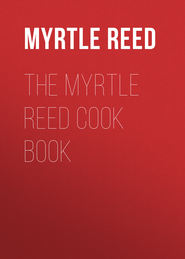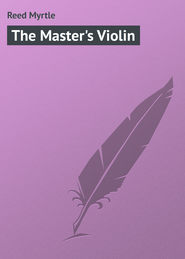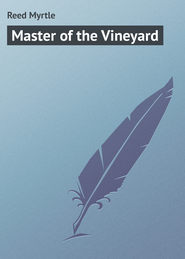По всем вопросам обращайтесь на: info@litportal.ru
(©) 2003-2024.
✖
Threads of Grey and Gold
Настройки чтения
Размер шрифта
Высота строк
Поля
Then Balder fearlessly took his place in the combats of the gods and fought unharmed while showers of arrows were falling all about him.
His enemy, Loake, determined to discover the secret of his invulnerability, and, disguising himself as an old woman, went to the mother with a question of the reason of his immunity. Friga answered that she had made a charm and invoked all nature to keep from injuring her son.
“Indeed,” said the old woman, “and did you ask all the animals and plants? There are so many, it seems impossible.”
“All but one,” answered Friga proudly; “all but a little insignificant plant which grows upon the bark of the oak. This I did not think of invoking, since so small a thing could do no harm.”
Much delighted, Loake went away and gathered mistletoe. Then he entered the assembly of the gods and made his way to the blind Heda.
“Why do you not shoot with the arrows at Balder?” asked Loake.
“Alas,” replied Heda, “I am blind and have no arms.”
Loake then gave him an arrow tipped with mistletoe and said: “Balder is before thee.” Heda shot and Balder fell, pierced through the heart.
In its natural state, the plant is believed to be propagated by the missel-thrush, which feeds upon its berries, but under favourable climatic conditions one may raise one’s own mistletoe by bruising the berries on the bark of fruit trees, where they take root readily. It must be remembered, however, that the plant is a true parasite and will eventually kill whatever tree gives it nourishment.
Kissing under the mistletoe was also a custom of the Druids, and in those uncivilised days men kissed each other. For each kiss, a single white berry was plucked from the spray, and kept as a souvenir by the one who was kissed.
The burning of the Yule log was an ancient Christmas ceremony borrowed from the early Scandinavians. At their feast of Juul (pronounced Yuul), at the time of the winter solstice, they were wont to kindle huge bonfires in honour of their god Thor. The custom soon made its way to England where it is still in vogue in many parts of the country.
One may imagine an ancient feudal castle, heavily fortified, standing in splendid isolation upon a snowy hill, on that night of all others when war was forgotten and peace proclaimed. Drawn by six horses, the great Yule log was brought into the hall and rolled into the vast fireplace, where it was lighted with the charred remnants of last year’s Yule log, religiously kept in some secure place as a charm against fire.
As the flames seize upon the oak and the light gleams from the castle windows, a lusty procession of wayfarers passes through, each one raising his hat as he passes the fire which burns all the evil out of the hearts of men, and up to the rafters there rings a stern old Saxon chant.
When the song was finished, the steaming wassail bowl was brought out, and all the company drank to a better understanding.
Up to the time of Henry VI, and even afterward, the Yule log was greeted with bards and minstrelsy. If a squinting person came into the hall while the log was burning, it was sure to bring bad luck. The appearance of a barefooted man was worse, and a flat-footed woman was the worst of all.
As an accompaniment to the Yule log, a monstrous Christmas candle was burned on the table at supper; even now in St. John’s College at Oxford, there is an old candle socket of stone, ornamented with the figure of a lamb. What generations of gay students must have sat around that kindly light when Christmas came to Oxford!
Snap-dragon was a favourite Christmas sport at this time. Several raisins were put into a large shallow bowl and thoroughly saturated with brandy. All other lights were extinguished and the brandy ignited. By turns each one of the company tried to snatch a raisin out of the flames, singing meanwhile.
In Devonshire, they burn great bundles of ash sticks, while master and servants sit together, for once on terms of perfect equality, and drink spiced ale, and the season is one of great rejoicing.
Another custom in Devonshire is for the farmer, his family, and friends, to partake of hot cake and cider, and afterward go to the orchard and place a cake ceremoniously in the fork of a big tree, when cider is poured over it while the men fire off pistols and the women sing.
A similar libation, but of spiced ale, used to be sprinkled through the orchards and meadows of Norfolk. Midnight of Christmas was the time usually chosen for the ceremony.
In Devon and Cornwall, a belief is current that, at midnight on Christmas Eve, the cattle kneel in their stalls in honour of the Saviour, as legend claims they did in Bethlehem.
In Wales, they carry about at Christmas time a horse’s skull gaily adorned with ribbons, and supported on a pole by a man who is wholly concealed by a white cloth. There is a clever contrivance for opening and shutting the jaws, and this strange creature pursues and bites all who come near it.
The figure is usually accompanied by a party of men and boys grotesquely dressed, who, on reaching a house, sing some verses, often extemporaneous, demanding admittance, and are answered in the same fashion by those within until rhymes have given out on one side or the other.
In Scotland, he who first opens the door on Christmas Day expects more good luck than will fall to the lot of other members of the family during the year, because, as the saying goes, he lets in Yule.
In Germany, Christmas Eve is the children’s night, and there is a tree and presents. England and America appear to have borrowed the Christmas tree from Germany, where the custom is ancient and very generally followed.
In the smaller towns and villages in northern Germany, the presents are sent by all the parents to some one fellow who, in high buskins, white robe, mask, and flaxen wig, personates the servant, Rupert. On Christmas night he goes around to every house, and says that his master sent him. The parents and older children receive him with pomp and reverence, while the younger ones are often badly frightened.
He asks for the children, and then demands of their parents a report of their conduct during the past year. The good children are rewarded with sugar-plums and other things, while for the bad ones a rod is given to the parents with instructions to use it freely during the coming year.
In those parts of Pennsylvania where there are many German settlers, the little sinners often find birchen rods suggestively placed in their stockings on Christmas morning.
In Poland, the Christmas gifts are hidden, and the members of the family search for them.
In Sweden and Norway, the house is thoroughly cleaned, and juniper or fir branches are spread over the floor. Then each member of the family goes in turn to the bake house, or outer shed, where he takes his annual bath.
But it is back to Old England, after all, that we look for the merriest Christmas. For two or three weeks beforehand, men and boys of the poorer class, who were called “waits,” sang Christmas carols under every window. Until quite recently these carols were sung all through England, and others of similar import were heard in France and Italy.
The English are said to “take their pleasures sadly,” but in the matter of Christmas they can “give us cards and spades and still win.” Parties of Christmas drummers used to go around to the different houses, grotesquely attired, and play all sorts of tricks. The actors were chiefly boys, and the parish beadle always went along to insure order.
The Christmas dinner of Old England was a thing capable of giving the whole nation dyspepsia if they indulged freely.
The main dish was a boar’s head, roasted to a turn, and preceded by trumpets and minstrelsy. Mustard was indispensable to this dish.
Next came a peacock, skinned and roasted. The beak was gilded, and sometimes a bit of cotton, well soaked in spirits, was put into his mouth, and when he was brought to the table this was ignited, so that the bird was literally spouting fire. He was stuffed with spices, basted with yolks of eggs, and served with plenty of gravy.
Geese, capons, pheasants, carps’ tongues, frumenty, and mince, or “shred” pies, made up the balance of the feast.
The chief functionary of Christmas was called “The Lord of Misrule.”
In the house of king and nobleman he held full sway for twelve days. His badge was a fool’s bauble and he was always attended by a page, both of them being masked. So many pranks were played, and so much mischief perpetrated which was far from being amusing, that an edict was eventually issued against this form of liberty, not to say license.
The Lord of Misrule was especially reviled by the Puritans, one of whom set him down as “a grande captain of mischiefe.” One may easily imagine that this stern old gentleman had been ducked by a party of revellers following in the wake of the lawless “Captaine” because he had refused to contribute to their entertainment.
We need not lament the passing of Christmas pageantry, if the spirit of the festival remains. Through the centuries that have passed since the first Christmas, the spirit of it has wandered in and out like a golden thread in a dull tapestry, sometimes hidden, but never wholly lost. It behooves us to keep well and reverently such Christmas as we have, else we shall share old Ben Jonson’s lament in The Mask of Father Christmas, which was presented before the English Court nearly two hundred years ago:
“Any man or woman … that can give any knowledge, or tell any tidings of an old, very old, grey haired gentleman called Christmas, who was wont to be a very familiar ghest, and visit all sorts of people both pore and rich, and used to appear in glittering gold, silk and silver in the court, and in all shapes in the theatre in Whitehall, and had singing, feasts and jolitie in all places, both citie and countrie for his coming – whosoever can tel what is become of him, or where he may be found, let them bring him back again into England.”
Consecration
Cathedral spire and lofty architrave,
Nor priestly rite and humble reverence,
Nor costly fires of myrrh and frankincense
May give the consecration that we crave;
Upon the shore where tides forever lave
With grateful coolness on the fevered sense;
Where passion grows to silence, rapt, intense,
There waits the chrismal fountain of the wave.
By rock-hewn altars where is said no word,
Save by the deep that calleth unto deep,
While organ tones of sea resound above;
The truth of truths our inmost souls have heard,
And in our hearts communion wine we keep,
For He Himself hath said it – “God is Love!”











